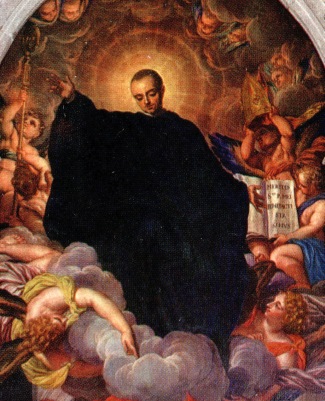Saint Medardus, also known as Medard, was the Bishop of Noyon. He was born around 456. He lived during the immediate aftermath of the fall of the Western Roman Empire. The last Western Roman emperor was deposed in 476.
At the age of 33, he was ordained. His piety and knowledge, considerable for that time, caused Bishop Alomer of Vermand to confer on him Holy Orders. At the death of Alomer in 530, Medardus was chosen to succeed him as bishop of Vermand. Despite his objections, he found himself obliged to accept the heavy responsibilities of the position, to which he devoted himself zealously.
He is held to have removed the seat of his bishopric from Vermand, a little city with no defences, to Noviomagus Veromanduorum (modern Noyon), the strongest place in that region of Neustria, in 531. In 532, at the death of Eleutherius, bishop of Tornacum, Medardus was invited to assume the direction of that diocese also. He refused at first, but being urged by King Clotaire himself, he at last accepted. The union of the two dioceses of Noviomagus/Noyon and Tornacum/Tournai lasted until 1146, when they were again separated.
Medardus was one of the most honored bishops of his time. His memory has always been popularly venerated, first in the north of France, then in Cologne and extending to western Germany. He became the hero of numerous legends. He was often depicted laughing, with his mouth wide open, therefore he was invoked against toothache. He is also invoked against bad weather (but also for rain), sterility and imprisonment. He is patron saint of vineyards, brewers, captives and prisoners, the mentally ill, and peasants.








